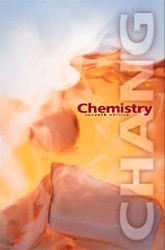|
 |  Chemistry, 7/e Raymond Chang,
Williams College
Nuclear Chemistry
Internet ExercisesUniversity of Akron's chemistry
(http://ull.chemistry.uakron.edu/genobc/)
- Go again to the University of Akron's chemistry
list at http://ull.chemistry.uakron.edu/genobc/,
and click on the course animations list for general, organic, and biochemistry
by James Hardy. Download number 46, fission of a uranium atom, and number
51, a nuclear chain reaction.
- How is fission, a nuclear reaction, different
from chemical reactions?
- Besides the formation of smaller nuclei
and energy, what else is produced?
- How is this other product important in
the production of nuclear energy?
|
 |  |  | General Atomics Fusion Group
(http://FusionEd.gat.com/SlideShowFolder/PlasmaDefined.html)
- The General Atomics Fusion Group has an educational
homepage providing explanatory texts and images concerning nuclear fusion.
Find out more about plasma at http://FusionEd.gat.com/SlideShowFolder/PlasmaDefined.html.
- Why are extremely high temperatures necessary
to carry out nuclear fusion?
- What happens to molecules or atoms at 100
million degrees Celsius?
- What is plasma composed of?
- Plasma is so hot that scientists cannot
rely on simple containers. How then is plasma confined?
|
 |  |  | Nuclear chemistry
(http://vax1.bemidji.msus.edu/~chemistry/nuclear.html)
- Nuclear chemistry is also presented at Bemidji
State University's chemistry pages. Learn about it at http://vax1.bemidji.msus.edu/~chemistry/nuclear.html,
and answer the questions below and on the web page.
- List the six differences between nuclear
reactions and chemical reactions.
- What are the three kinds of radiation?
|
|
|



 2002 McGraw-Hill Higher Education
2002 McGraw-Hill Higher Education

 2002 McGraw-Hill Higher Education
2002 McGraw-Hill Higher Education